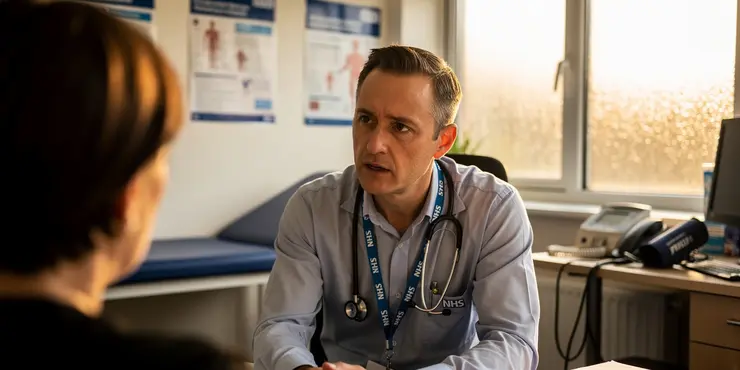
Find Help
More Items From Ergsy search
-
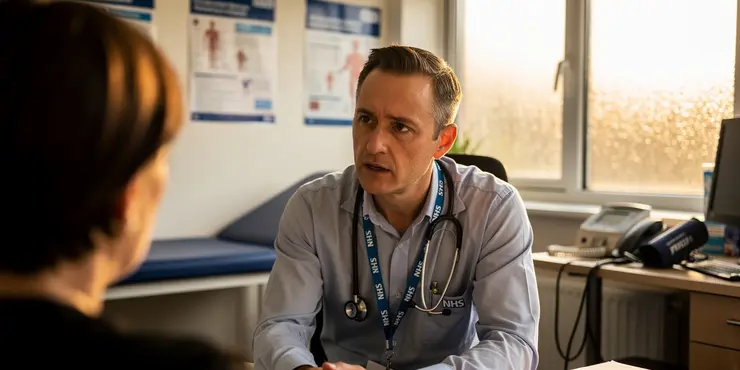
GPs Warn Antibiotic Overuse Could Lead to Superbug Crisis
Relevance: 100%
-
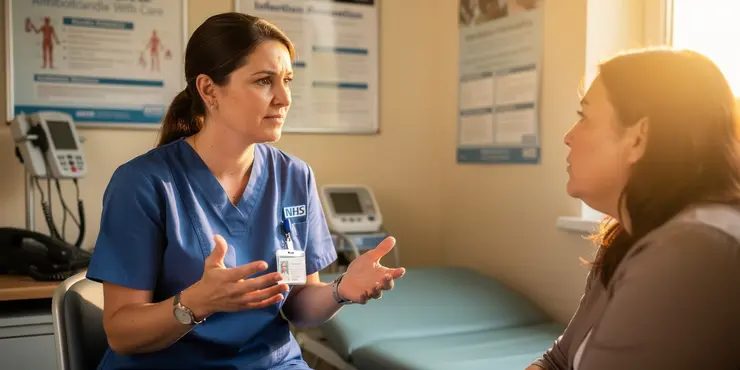
Is it bad to take antibiotics?
Relevance: 48%
-
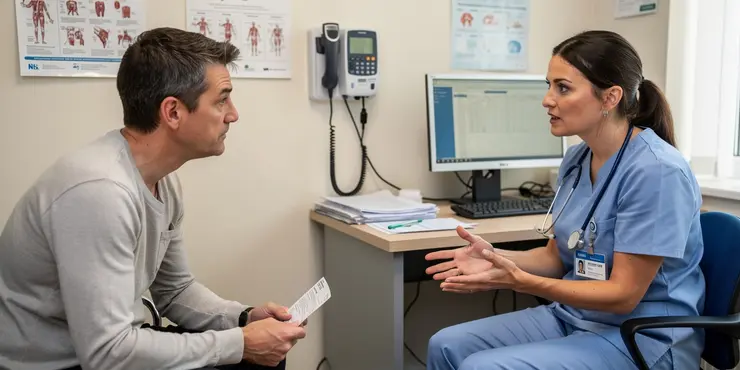
Can taking antibiotics be harmful?
Relevance: 47%
-
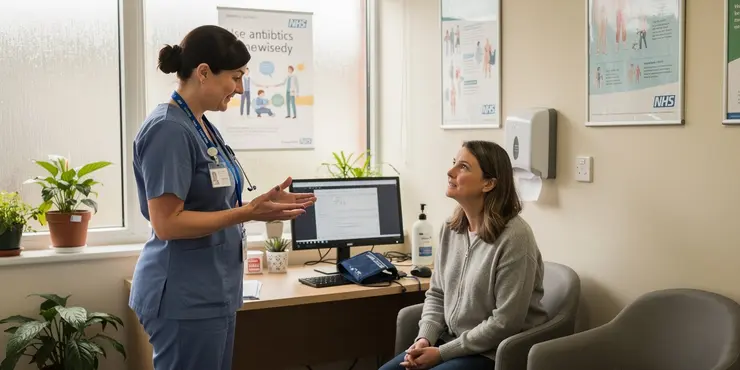
What is antibiotic resistance?
Relevance: 47%
-
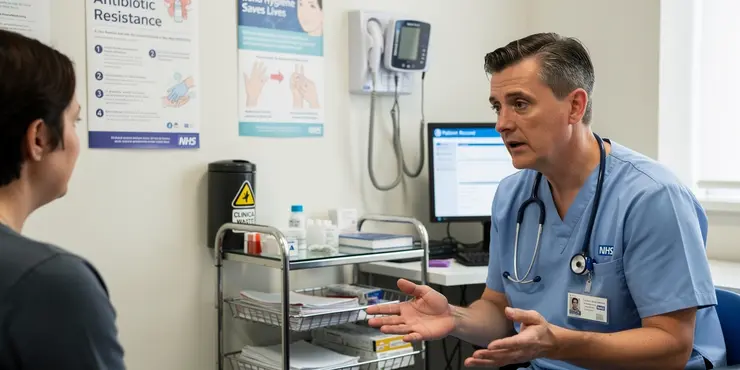
Why is antibiotic resistance a problem?
Relevance: 45%
-
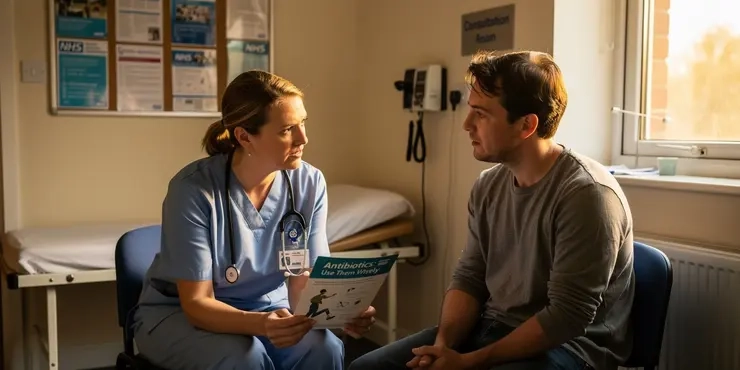
Antibiotics and You: An introduction to antibiotic resistant infections
Relevance: 42%
-
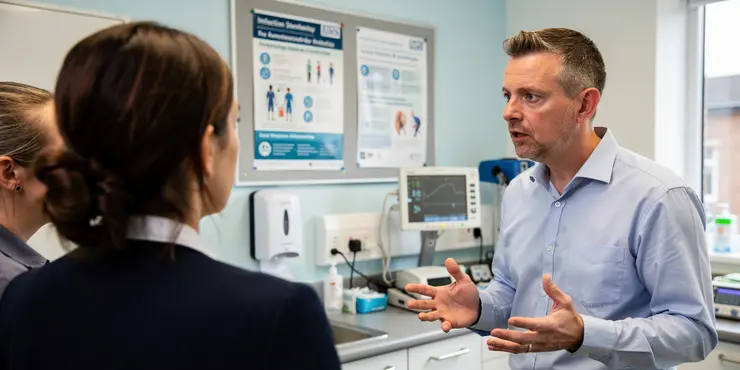
Efforts to Combat Antibiotic Resistance Gain Momentum with New Research Initiatives
Relevance: 41%
-
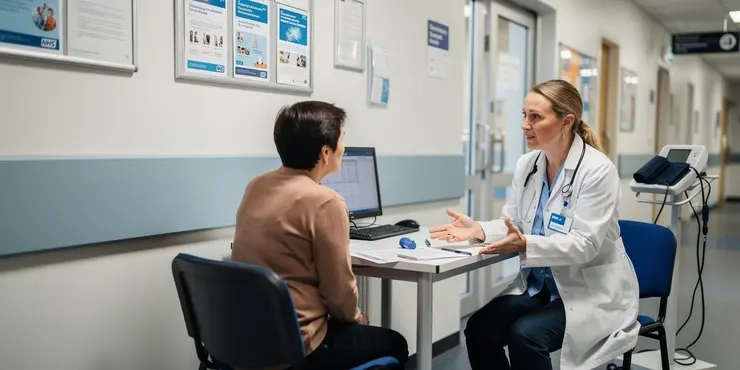
Acute COPD in Adults: Antibiotics or not - Dr Nick Francis
Relevance: 38%
-
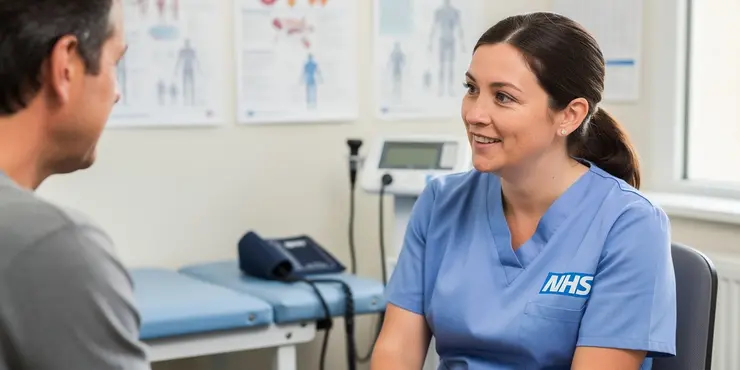
Why is antibiotic resistance a concern with gonorrhoea?
Relevance: 38%
-
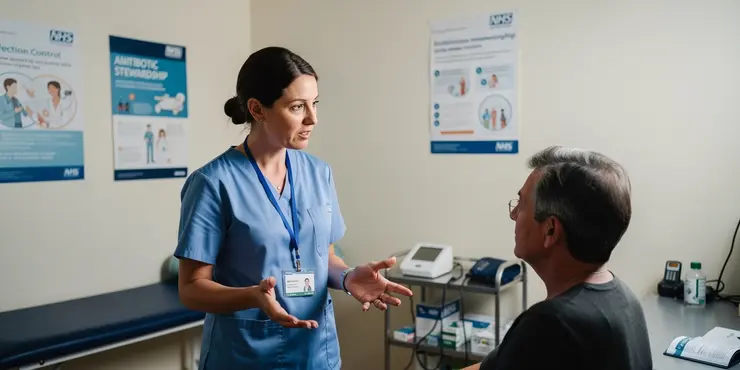
Is taking antibiotics always bad?
Relevance: 38%
-
Impact of UK Housing Crisis on Local Communities
Relevance: 37%
-
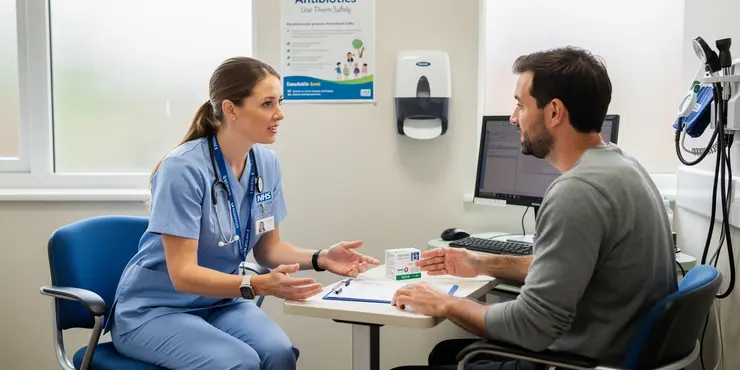
Can taking antibiotics frequently cause resistance?
Relevance: 35%
-
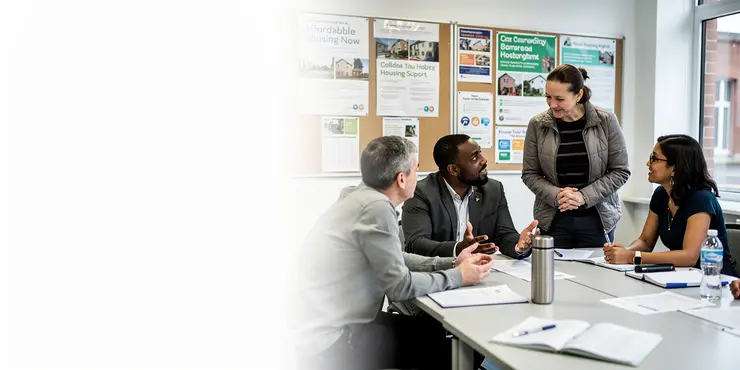
Addressing the Housing Crisis: Current Challenges and Solutions
Relevance: 34%
-

Navigating the UK Cost of Living Crisis: Tips for Families
Relevance: 33%
-

Mental Health Impact of Cost of Living Crisis and Support Resources
Relevance: 31%
-
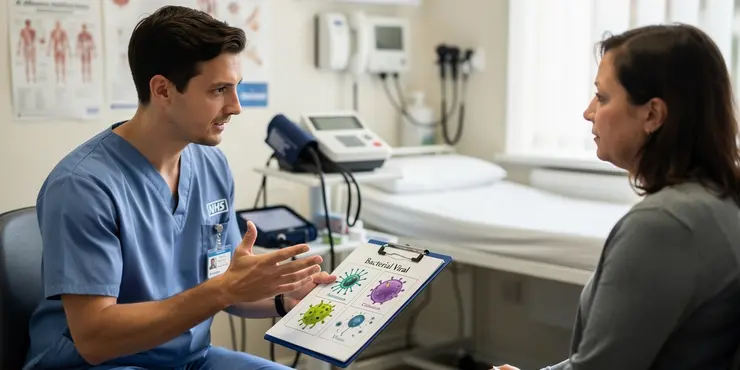
Do antibiotics work on viral infections?
Relevance: 31%
-
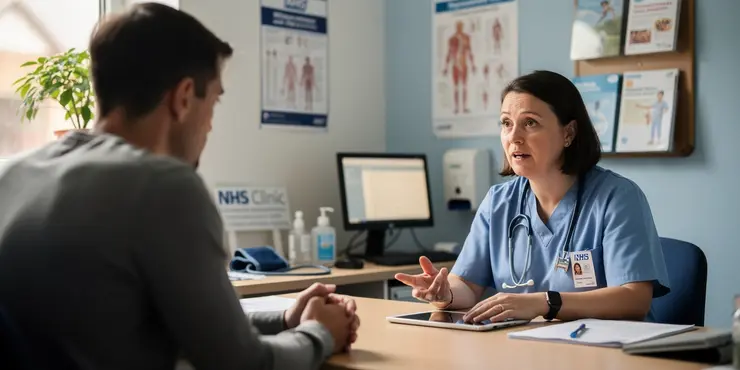
Can appendicitis be treated with antibiotics?
Relevance: 31%
-
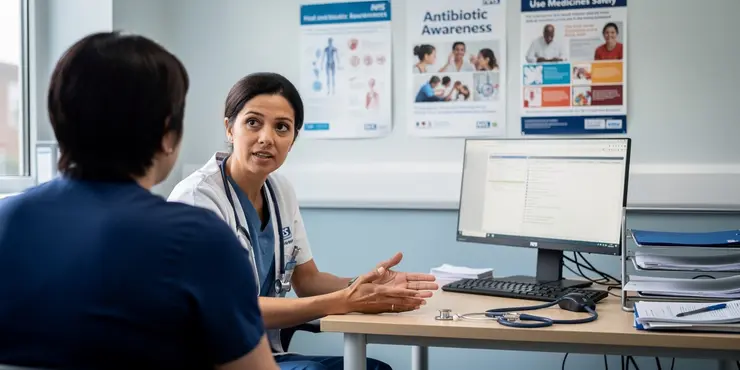
Can I take antibiotics for a cold?
Relevance: 30%
-
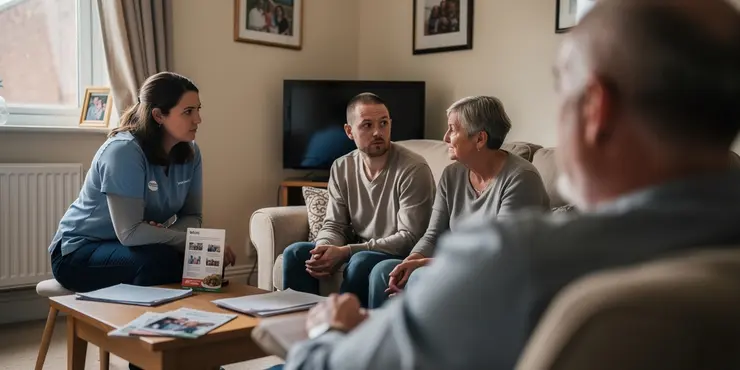
Addressing the Cost of Living Crisis: Community Support and Resources
Relevance: 30%
-
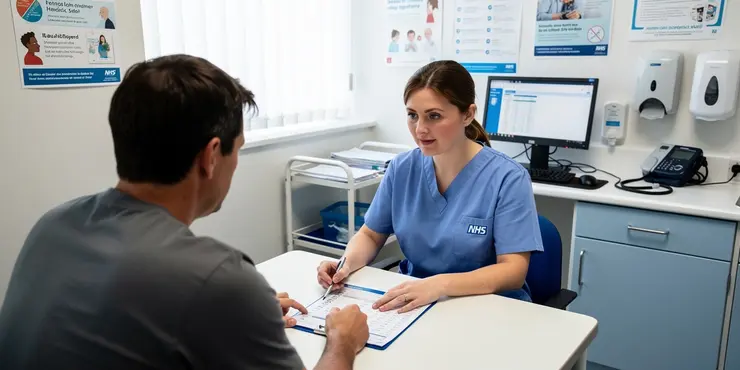
What are common side effects of antibiotics?
Relevance: 29%
-
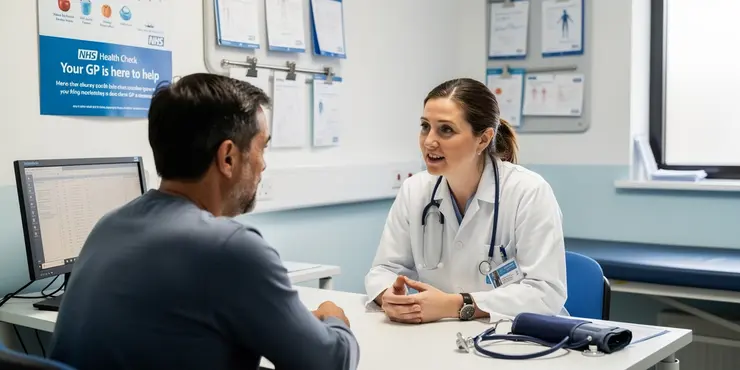
Can antibiotics treat norovirus?
Relevance: 29%
-
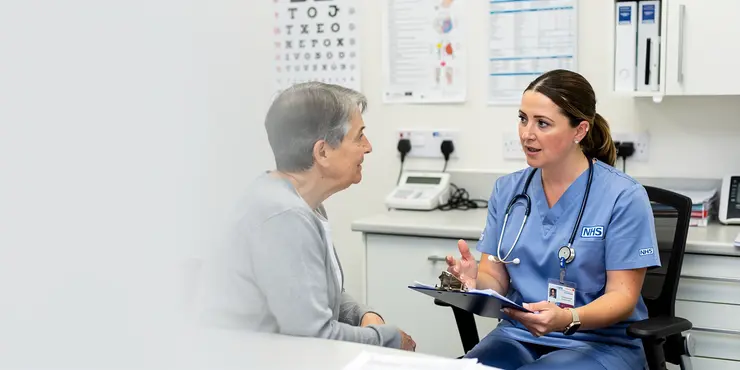
What antibiotics are used to treat gonorrhoea?
Relevance: 28%
-
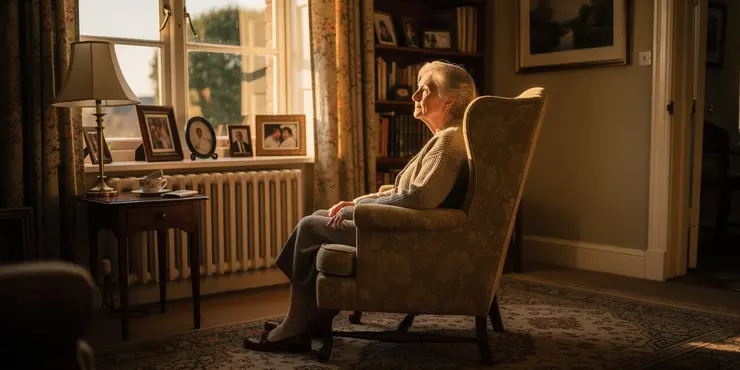
UK's Elderly Population Faces Growing Loneliness Crisis
Relevance: 28%
-
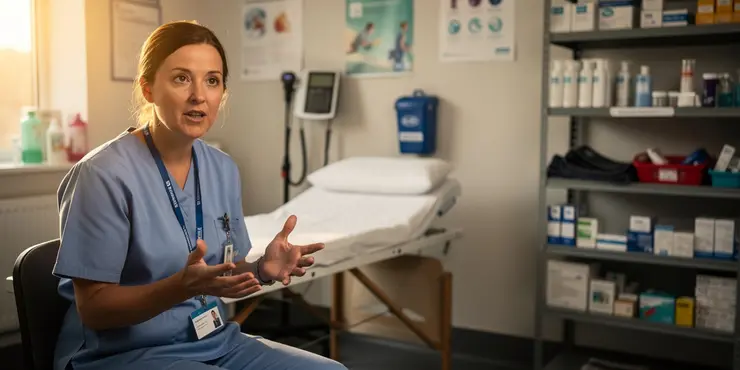
Should I stop taking antibiotics if I feel better?
Relevance: 28%
-
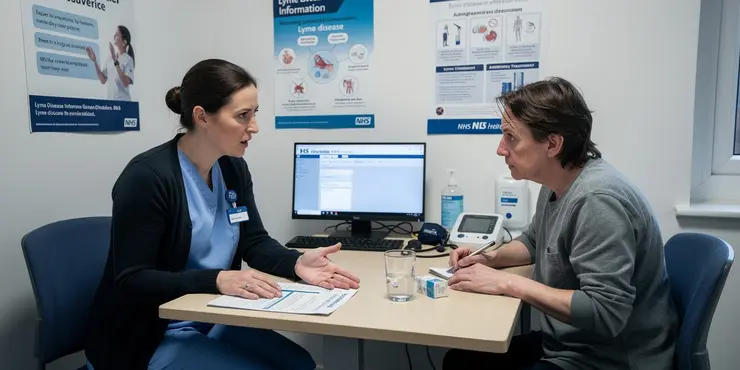
How effective are antibiotics in treating Lyme disease?
Relevance: 28%
-
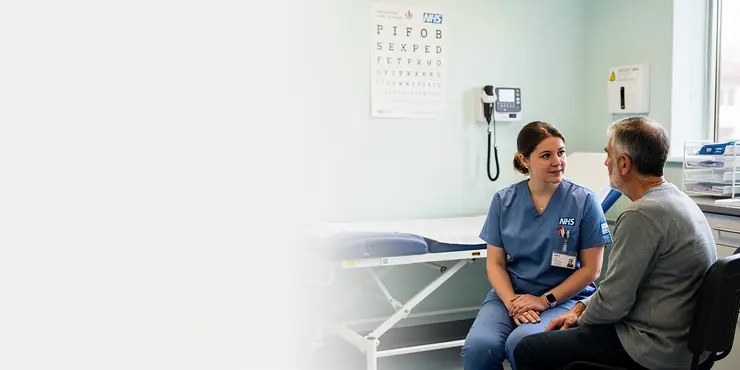
Can the bubonic plague become resistant to antibiotics?
Relevance: 28%
-
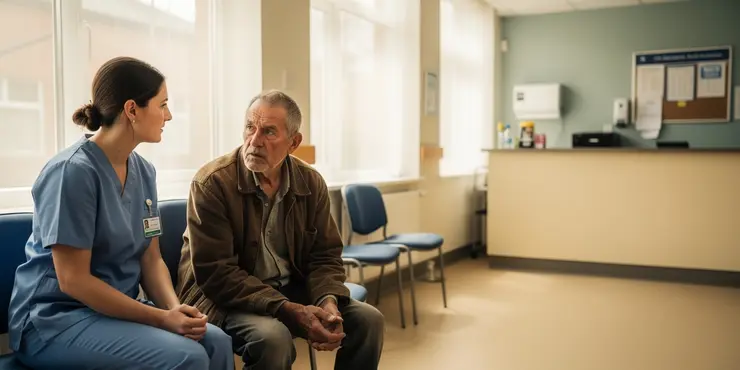
Addressing the Rising Homelessness Crisis
Relevance: 28%
-
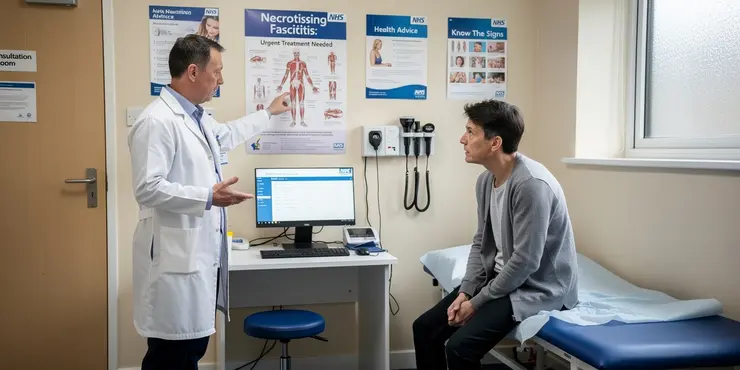
Can antibiotics alone cure flesh-eating disease?
Relevance: 27%
-
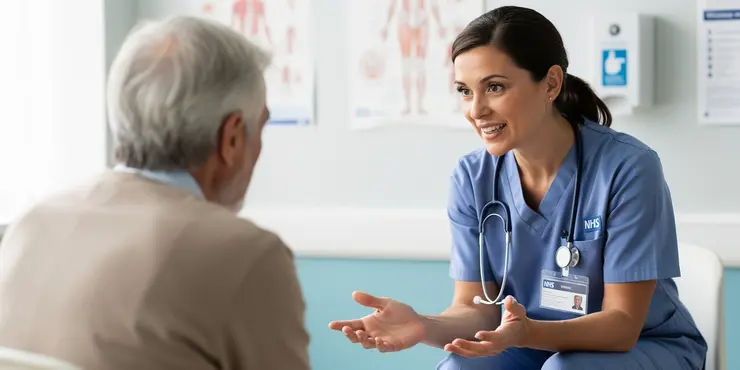
How do antibiotics affect gut health, especially in older adults?
Relevance: 26%
-
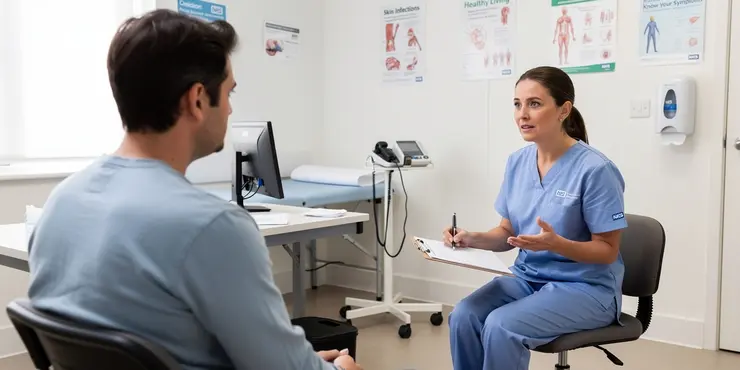
2 episodes of cellulitis and been given antibiotics but the redness doesn't seem to be improving?
Relevance: 24%
-

Cost of Living Crisis: Supermarkets Promise More Discounts for Shoppers
Relevance: 23%
-
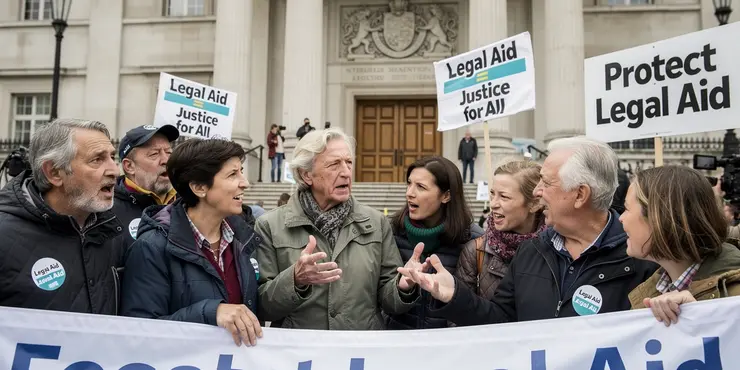
Legal Aid Cuts: Campaigners Warn of Access to Justice Crisis
Relevance: 21%
-
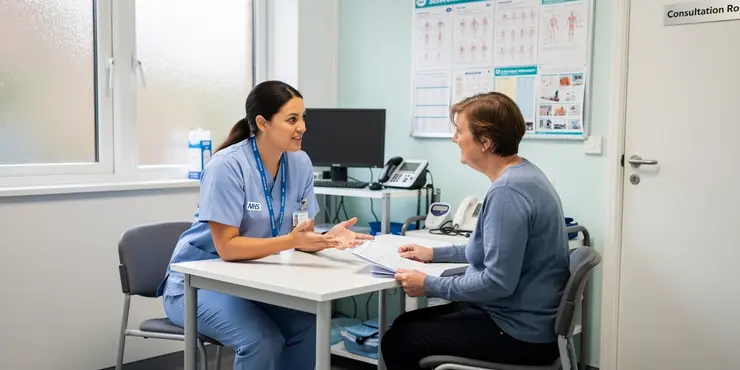
What types of antibiotics are typically used to treat Lyme disease?
Relevance: 19%
-
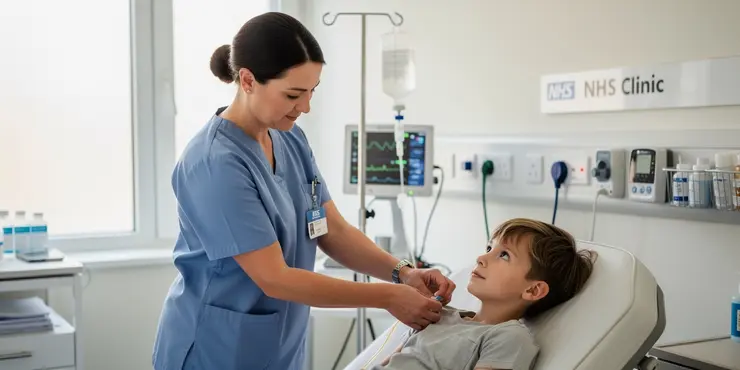
What is the treatment for bacterial meningitis?
Relevance: 13%
-
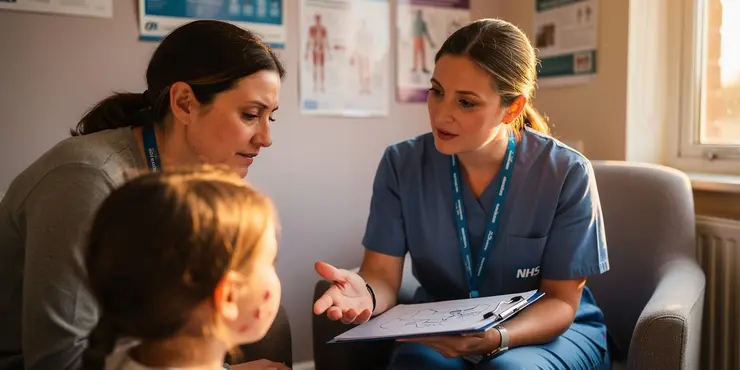
How is impetigo treated?
Relevance: 13%
-
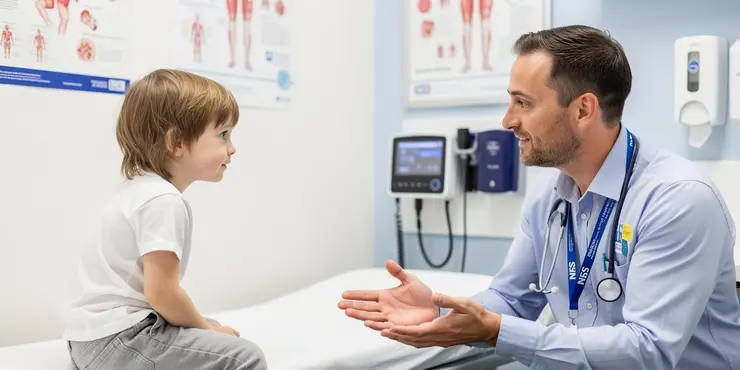
How long does it take for impetigo to heal?
Relevance: 12%
-
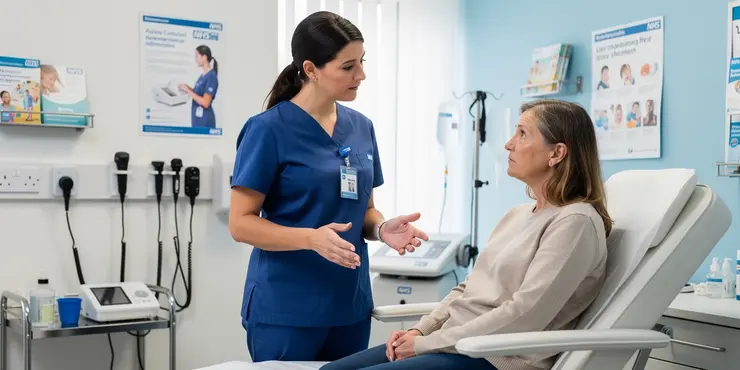
How can the bubonic plague be treated?
Relevance: 12%
-
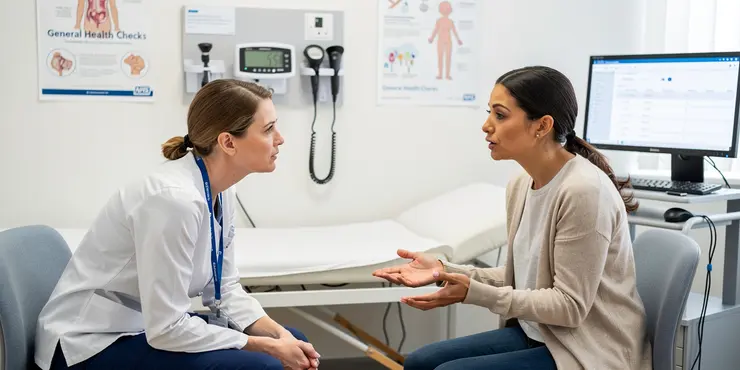
Can Lyme disease be treated?
Relevance: 12%
-
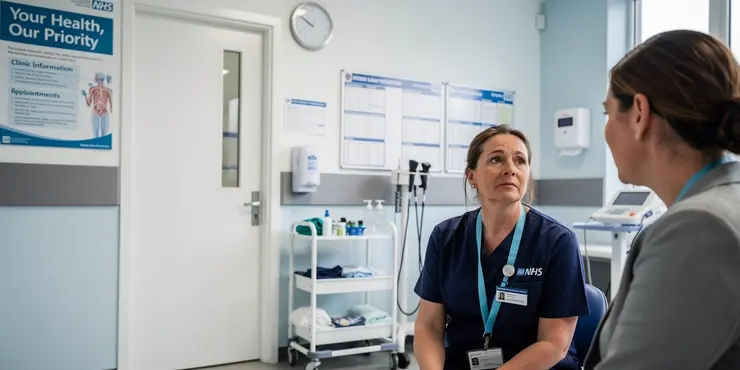
SLaM's Suicide Prevention, Learning and Support Strategy
Relevance: 11%
-
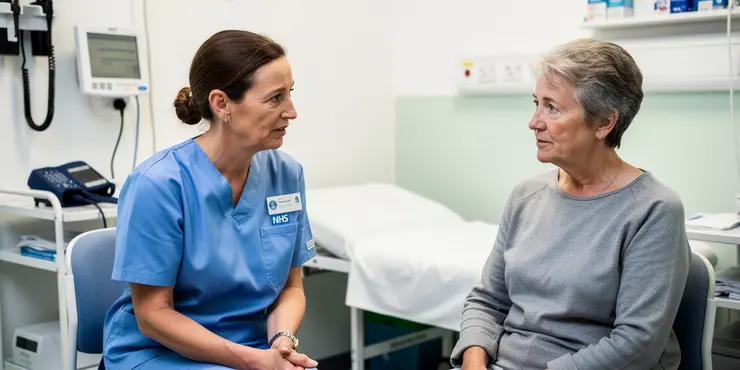
Can you still get gonorrhoea after treatment?
Relevance: 11%
Introduction to Antibiotic Resistance
General Practitioners (GPs) across the UK are raising alarms about the overuse of antibiotics and its potentially catastrophic consequences. Antibiotics have played a crucial role in modern medicine by effectively treating bacterial infections. However, the misuse and overuse of these drugs are leading to antibiotic resistance, an urgent public health threat. This resistance occurs when bacteria evolve to withstand the effects of antibiotics designed to kill them, rendering standard treatments ineffective and leading to persistent infections.
The Emerging Threat of Superbugs
Superbugs are strains of bacteria that have become resistant to multiple antibiotics, making them particularly difficult, and sometimes impossible, to treat. The emergence and spread of superbugs could result in a healthcare crisis, as common infections might again become life-threatening. GPs warn that without immediate action to curb antibiotic misuse, we could see a marked increase in these resistant strains, which could overwhelm the NHS and endanger public health.
Contributing Factors to Antibiotic Overuse
Several factors contribute to the overuse of antibiotics, including pressure on GPs to prescribe antibiotics, patient demand, and lack of awareness about antibiotic resistance. Misunderstandings about when antibiotics are needed, such as their ineffectiveness against viral infections like the common cold, drive this trend. Furthermore, antibiotics are sometimes unnecessarily prescribed for livestock in agriculture, contributing to the problem.
Strategies to Combat Antibiotic Resistance
The medical community is advocating for a multi-faceted approach to tackle antibiotic resistance. Public education campaigns on the judicious use of antibiotics, better diagnostic tools for GPs, and stringent guidelines for prescribing are critical steps. There is also a call for increased surveillance of antibiotic use and resistance patterns, as well as research into new antibiotics and alternative treatments. Collaborative efforts between the healthcare sector, governments, and the public are essential to effectively address this pressing issue.
Introduction to Antibiotic Resistance
Doctors in the UK are worried about using too many antibiotics. Antibiotics are medicines that help us fight bacteria and make us better when we are sick. But if we use them too much or in the wrong way, they stop working. This problem is called antibiotic resistance. It means that bacteria get stronger and the medicine won't work against them anymore. This can make infections last longer and be harder to treat.
The Emerging Threat of Superbugs
Superbugs are very strong bacteria that don't get killed by most medicines. This makes them very hard to treat, and sometimes doctors can't cure them at all. If superbugs spread, a lot of people could get sick from infections we used to be able to treat easily. Doctors say we need to stop using antibiotics too much, or else more superbugs will appear. This could make lots of people sick and could cause big problems for our hospitals.
Contributing Factors to Antibiotic Overuse
There are a few reasons why we use too many antibiotics. Sometimes, people ask doctors for antibiotics even when they don't need them. This happens because some people don't know when antibiotics are necessary. For example, antibiotics don't work on colds, which are caused by viruses. Also, farmers sometimes use antibiotics on animals when it's not needed. This adds to the problem.
Strategies to Combat Antibiotic Resistance
Doctors have many plans to solve the problem of antibiotic resistance. They want to teach everyone about when to use antibiotics. This includes better tools for doctors to know when antibiotics are needed. There are also new rules about using these medicines carefully. Watching how antibiotics are used and finding new medicines can help too. To fix this big problem, doctors, governments, and everyone must work together.
Frequently Asked Questions
Useful Links
This website offers general information and is not a substitute for professional advice.
Always seek guidance from qualified professionals.
If you have any medical concerns or need urgent help, contact a healthcare professional or emergency services immediately.
Some of this content was generated with AI assistance. We’ve done our best to keep it accurate, helpful, and human-friendly.
- Ergsy carfully checks the information in the videos we provide here.
- Videos shown by Youtube after a video has completed, have NOT been reviewed by ERGSY.
- To view, click the arrow in centre of video.
- Most of the videos you find here will have subtitles and/or closed captions available.
- You may need to turn these on, and choose your preferred language.
- Go to the video you'd like to watch.
- If closed captions (CC) are available, settings will be visible on the bottom right of the video player.
- To turn on Captions, click settings .
- To turn off Captions, click settings again.
More Items From Ergsy search
-

GPs Warn Antibiotic Overuse Could Lead to Superbug Crisis
Relevance: 100%
-

Is it bad to take antibiotics?
Relevance: 48%
-

Can taking antibiotics be harmful?
Relevance: 47%
-

What is antibiotic resistance?
Relevance: 47%
-

Why is antibiotic resistance a problem?
Relevance: 45%
-

Antibiotics and You: An introduction to antibiotic resistant infections
Relevance: 42%
-

Efforts to Combat Antibiotic Resistance Gain Momentum with New Research Initiatives
Relevance: 41%
-

Acute COPD in Adults: Antibiotics or not - Dr Nick Francis
Relevance: 38%
-

Why is antibiotic resistance a concern with gonorrhoea?
Relevance: 38%
-

Is taking antibiotics always bad?
Relevance: 38%
-
Impact of UK Housing Crisis on Local Communities
Relevance: 37%
-

Can taking antibiotics frequently cause resistance?
Relevance: 35%
-

Addressing the Housing Crisis: Current Challenges and Solutions
Relevance: 34%
-

Navigating the UK Cost of Living Crisis: Tips for Families
Relevance: 33%
-

Mental Health Impact of Cost of Living Crisis and Support Resources
Relevance: 31%
-

Do antibiotics work on viral infections?
Relevance: 31%
-

Can appendicitis be treated with antibiotics?
Relevance: 31%
-

Can I take antibiotics for a cold?
Relevance: 30%
-

Addressing the Cost of Living Crisis: Community Support and Resources
Relevance: 30%
-

What are common side effects of antibiotics?
Relevance: 29%
-

Can antibiotics treat norovirus?
Relevance: 29%
-

What antibiotics are used to treat gonorrhoea?
Relevance: 28%
-

UK's Elderly Population Faces Growing Loneliness Crisis
Relevance: 28%
-

Should I stop taking antibiotics if I feel better?
Relevance: 28%
-

How effective are antibiotics in treating Lyme disease?
Relevance: 28%
-

Can the bubonic plague become resistant to antibiotics?
Relevance: 28%
-

Addressing the Rising Homelessness Crisis
Relevance: 28%
-

Can antibiotics alone cure flesh-eating disease?
Relevance: 27%
-

How do antibiotics affect gut health, especially in older adults?
Relevance: 26%
-

2 episodes of cellulitis and been given antibiotics but the redness doesn't seem to be improving?
Relevance: 24%
-

Cost of Living Crisis: Supermarkets Promise More Discounts for Shoppers
Relevance: 23%
-

Legal Aid Cuts: Campaigners Warn of Access to Justice Crisis
Relevance: 21%
-

What types of antibiotics are typically used to treat Lyme disease?
Relevance: 19%
-

What is the treatment for bacterial meningitis?
Relevance: 13%
-

How is impetigo treated?
Relevance: 13%
-

How long does it take for impetigo to heal?
Relevance: 12%
-

How can the bubonic plague be treated?
Relevance: 12%
-

Can Lyme disease be treated?
Relevance: 12%
-

SLaM's Suicide Prevention, Learning and Support Strategy
Relevance: 11%
-

Can you still get gonorrhoea after treatment?
Relevance: 11%


